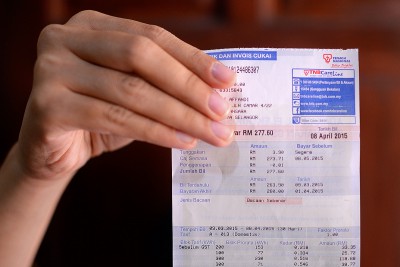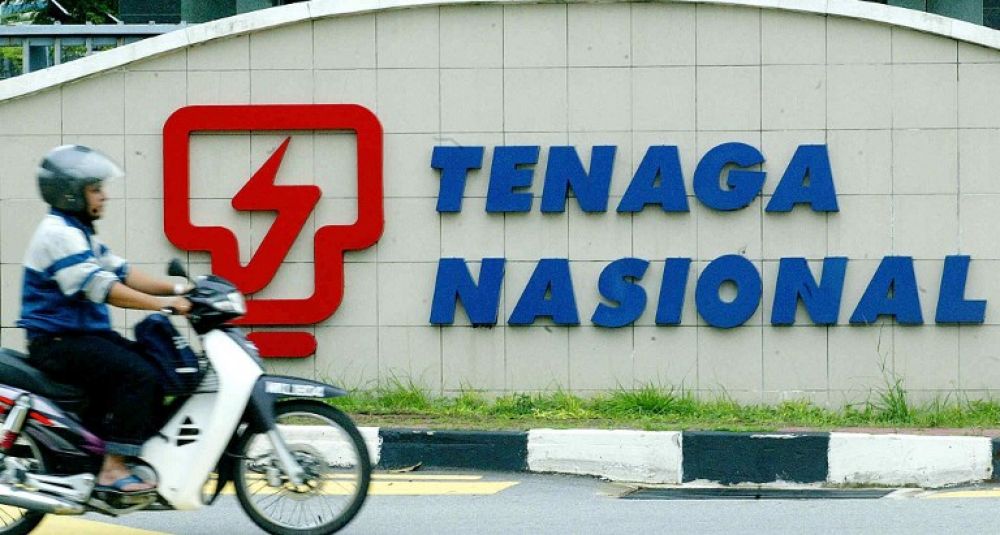Malaysians Told To Prepare For Electricity Surcharge As Rebates Might Be Removed
Malaysia's electricity tariffs are among the lowest in the ASEAN region.
Electricity consumers in Malaysia should be prepared for possible surcharge as the current rebates may be discontinued
Malaysia’s regulatory body for the electricity supply industry, the Energy Commission (EC), has reminded Malaysians that the government's electricity subsidy cannot go on forever and that consumers should use electricity wisely.
Acting chief executive and senior director of Electricity Industry Development and Market Regulation Ir. Azhar Omar, said in an interview with Bernama Radio recently, that subsidies coming to an end will be the inevitable, and Malaysians should be prepared for what comes next.
"We should be imposing surcharges but out of concern for the well-being of the people, the government is still using reserves to absorb the increase in costs because funds available may not be able to cater to future needs. People need to be prepared," he was quoted as saying by Bernama on Wednesday, 26 July.
The government has been offering subsidy to consumers for almost 10 years
A RM20 subsidy on monthly electricity bills is being offered to residential consumers since 1 October 2008, whereby bills amounting to RM20 or less are eligible to receive this rebate.
According to Azhar, the government has spent RM1.049 billion in giving out rebates.
He explained that the government would eventually stop subsidising these costs, not because they can no longer afford to absorb the charges but due to the fact that it is better to use the financial resources to further the country's economic development.
He also pointed out that other sectors in the country needed funds for development, including for building hospitals and roads, among others.
Azhar also revealed that Malaysia's electricity tariffs are among the lowest in the ASEAN region
Energy Commission (EC) acting chief executive and senior director of Electricity Industry Development and Market Regulation Ir Azhar Omar
Image via SlideshareHe pointed out that the electricity tariff for the industrial sector was low but high for domestic consumers in developed countries, whereas in Malaysia, consumers enjoy low tariffs across the residential, industrial, and commercial segments.
"This is because unlike other countries which are more nuanced towards commercial use, our tariff structure is designed to not burden, but help the people," he said.
Despite talks of possible electricity surcharge, it will not happen within the next few months
Energy, Green Technology and Water Minister Datuk Seri Maximus Johnity Ongkili announced on 30 June that electric tariffs in Peninsular Malaysia, Sabah, and Labuan federal territory will remain unchanged until 31 December 2017.
He revealed that the cost has gone up due to the increase in fuel cost and electricity generation for consumers in Peninsular but the Cabinet has agreed to allocate RM1.303 billion to cushion the cost incurred.
Meanwhile, a special subsidy amounting to RM468 million has been allocated for consumers in Sabah and the Federal Territory of Labuan for 2017.
The government is able to provide this subsidy through the Power Purchase Agreement Savings Fund (PPA Savings Fund). Basically, the fund was set up by the government and its objective is to accumulate savings so that consumers can enjoy (by cushioning the impact on tariff) and it is the result of the renegotiation with the first generation independent power producers (IPPs).
It was reported that the government has managed to collect about RM1.8 billion through this programme.
However, the rakyat may be singing a different tune in 2018
"Come December 2017, we would still have some balance (from RM1.8 billion), but from January onwards, I have to look at the revision, whether it's an increase or otherwise."
"The role of the Commission is to ensure reliable electricity supply at reasonable prices by factoring in the costs of providing electricity and reasonable returns to the utility company, fuel supply costs and others," Azhar said.
Bernama reported that one of the EC's roles is to ensure that the country’s utility company Tenaga Nasional Bhd (TNB) would not profit excessively. The EC is in the midst of conducting an audit on TNB to determine if costs incurred during the first regulatory period were reasonable and efficient.
Do you think the funds allocated for rebates should be used on other sectors to further the country's development? Let us know your thoughts in the comment section below.


